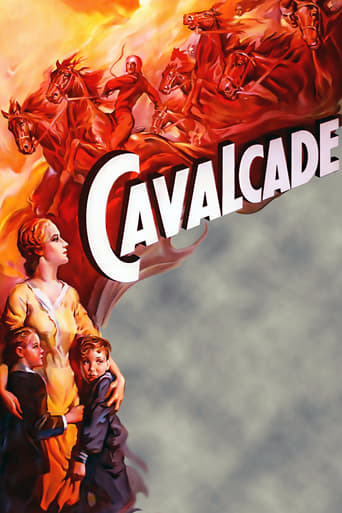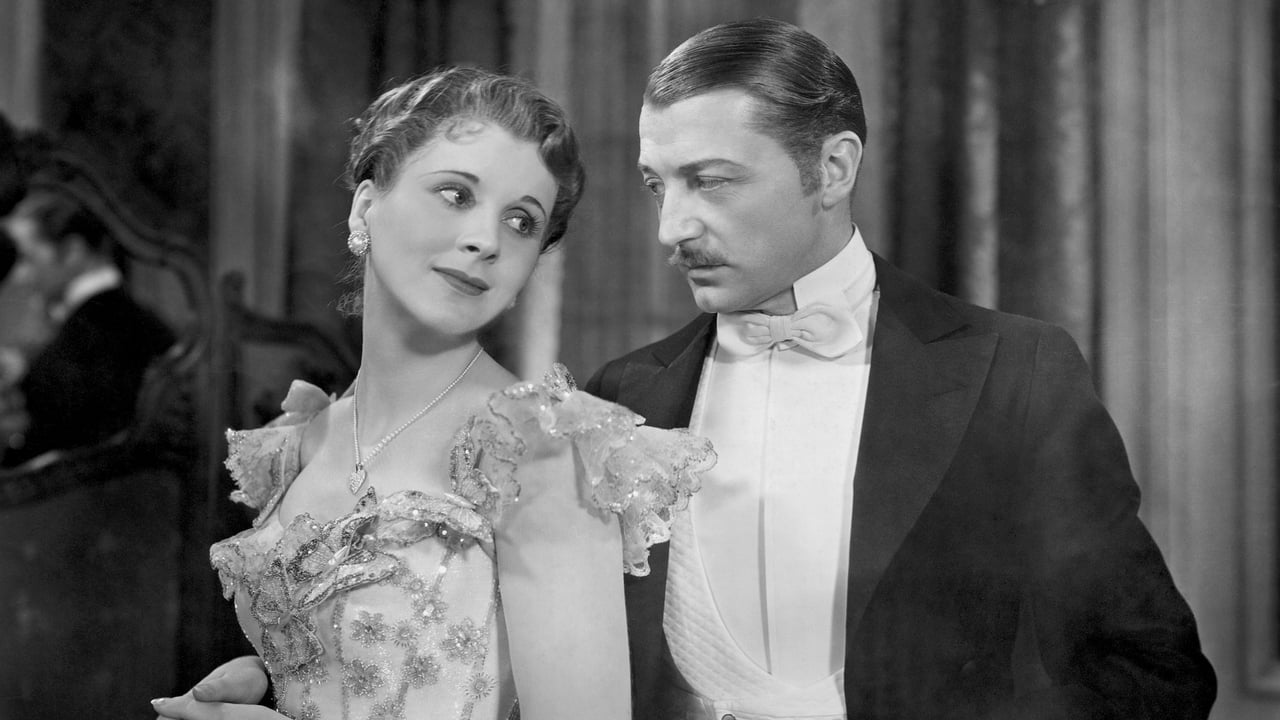Lee Eisenberg
Frank Lloyd's adaptation of Noël Coward's "Cavalcade" is one of the lesser known Best Picture winners. It focuses on a pair of families in England over the course of three decades. There's the upper-crust Marryots, and their servants, the Bridgeses. The rich family is used to seeing their country dominate the globe, and there's no shortage of wars getting fought - the Boer War, World War I - to ensure that the United Kingdom will continue to rule the world. One scene even takes place aboard the Titanic. But there are soon to be changes in the lives of this rich family, starting with Queen Victoria's death.With WWI still fresh in people's minds, it makes sense that the movie takes an anti-war stance, showing countless people getting killed on the battlefield. That war was one of the most senseless ever (and the Versailles Negotiations set the stage for WWII, the Vietnam War, and the current bloodshed in the Middle East). The 1920s and 1930s were the brief period when it authentically looked as though the world would avoid war. The Marryots, having seen the changes that have transpired since the dawn of the 20th century, can luxuriate in their wealth, but can only wonder what the future will bring.Among the other things that I noticed was that the recruiting song performed by the woman in the tavern (I'll Make a Man of You) also got performed by Maggie Smith's character in Richard Attenborough's anti-war musical "Oh! What a Lovely War".So, it's not the greatest movie ever made, but worth seeing.
Hot 888 Mama
. . . since Germany had, with ALL QUIET ON THE WESTERN FRONT, the ONLY foreign movie ever to win the "Best Picture" Oscar (1930). Or perhaps WINGS "started the fire," as the first claimant of this top prize in 1928. But both of these "best pictures" focused on WWI (or "the Great War," as it was called until the 1940s), while the 1933 top Oscar winner, CAVALCADE, is far more diffuse, covering 33 years of British history and even throwing in the kitchen sink! Yes, CAVALCADE is the template for PBS' perennial TV favorites, UPSTAIRS DOWNSTAIRS and DOWNTON ABBEY. As Billy Joe realized when he wrote his #1 hit in 1989 cataloging 119 items of mental furniture for the late Beatnik and early Baby Boomer Generations, a montage of headlines can be enough to create quite sentimental Art, reminding your "target audience" of its Youth. CAVALCADE is quite upfront about its intentions, daring viewers to observe a family (no doubt like themselves--in 1933, that is; AND, you have to count the servants, of course, for the realists in the audience) buffeted by "the cavalcade of the New 20th Century." Why not give household members tickets to the Boer War in South Africa, a place at the front of Queen Victoria's funeral cortège, a space at the railing on the Titanic, a white cross in a WWI cemetery, a knighthood, a showgirl, and a champagne toast on two New Year's Eves to bracket everything else? There's a continuing motif here of "ghost riders in the sky," presumably to symbolize the passing cavalcade of this flick's title. Though it is up to History to determine whether this movie OR Billy Joel's ode will be meaningful at the NEXT turn of a century (when everyone with a living memory of the events of either may have passed on), the superimposed battle sequences of WWI in CAVALCADE are among the most stirring martial art ever presented on screen.
blanche-2
The Marryot family is the focus of Noel Coward's antiwar film, "Cavalcade," made in 1933 and starring Diana Wynyard, Clive Brook, Una O'Connor, and Margaret Lindsay.This is an upstairs-downstairs look at the effects of war, and war's effects on society as we see what happens to the Bridges family, the servants, and the Marryots, during the years 1899-1933 in Great Britain. Not in any way snobbish, the Marryots in fact have a very close relationship with their servants. But class is class, and the class system declines to the point where the daughter (Ursula Jeans) of Ellen and Alfred Bridges (O'Connor and Herbert Mundin) becomes involved with her childhood playmate, Joe Marryot (Frank Lawton), a sign that the world the Marryots knew is fading away. All three Marryot men are involved in the Boer War, and two fight in World War I, to the distress of Jane Marryot (Wynyard), who is the representative of the antiwar sentiment.There are other world events that touch the family as well: the death of Queen Victoria, and the sinking of the Titanic.The film is a bit on the slow side and spends more time on the early period than the later. Coward, however, with shots of men blinded in the Great War, young men being shot, etc., makes his point very well.My big quibble with this film is that it goes for 34 years. At the beginning, the Marryots have young children. Even if the Mr. and Mrs. Marryot were 30 years old at the beginning of the film -- why at the end of the movie did they look and act 90? It was hilarious as they're probably in their sixties. It goes to show how the concept of age has really changed.This film is okay but somehow not as involving or as good as David Lean's This Happy Breed which concerns a middle-class family post World War I to World War II - also written by Noel Coward. I think This Happy Breed has a better cast; some of the acting in Cavalcade is a little stiff. Still, there are some striking scenes.
calvinnme
I enjoyed this film, not so much as a piece of entertainment that still holds up today, but as a moment frozen both in time and geography. Unlike "42nd Street" and "Dinner at Eight" which are other films from 1933 that I think most Americans would find very accessible today, you might not care for Cavalcade if you don't know what to look for.This film is totally British in its perspective and it is also very much in the anti-war spirit that pervaded movies between 1925 and 1935 as WWI came to be seen by nearly all its global participants as a pointless war and caused everyone to lose their taste for fighting another.The British perspective that you have to realize is that the Marryotts are accustomed to being on top - both in the world as England had dominated the globe for centuries, and socially, as they were part of the aristocracy. That didn't mean that they were snobs - they were very friendly and compassionate with their servants. But the point is, they were accustomed to the relationship being their choice and under their control. Suddenly England appears to be on the decline on the world stage and the servants they were so kind to are coming up in the world on their own and don't need their permission to enter society. Downstairs is coming upstairs, like it or not.Downstairs is personified in this film by the Bridges family, Marryot servants that eventually strike out on their own and into business. Eventually the daughter, Fanny, enters into a romance with the Marryot's younger son. When Mrs. Marryot learns the news she is not so shocked as she is resigned to the fact that this is another sign that her world is slipping away. As for Fanny Bridges, she seems to personify post-war decadence as she grows from a child to full womanhood in the roaring 20's. At one point in the film, as a child, she literally dances on the grave of a loved one. This is not a good sign of things to come.If the movie has a major flaw it is that it goes rather slowly through the years 1900 through 1918 and flies through the last fifteen years. Through a well-done montage you get a taste for what British life was like during that time - in many cases it looks like it was going through the same growing pains as American society during that same period - but it's only a taste.Overall I'd recommend it, but just realize that it is quite different in style from American films from that same year.



 AD
AD




